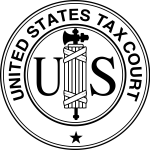 In Yari v. Commissioner, 143 T.C. No. 7, the Tax Court upheld a $100,000 statutory maximum, penalty under IRC § 6707A(b)(2)(A) assessed against the taxpayer for failing to report a listed transaction. The case presents an issue of first impression on the proper calculation of a penalty under IRC § 6707A(b).
In Yari v. Commissioner, 143 T.C. No. 7, the Tax Court upheld a $100,000 statutory maximum, penalty under IRC § 6707A(b)(2)(A) assessed against the taxpayer for failing to report a listed transaction. The case presents an issue of first impression on the proper calculation of a penalty under IRC § 6707A(b).
The taxpayer participated in a listed Roth IRA transaction from 2002 to 2007. The transaction involved the taxpayer forming a disregarded entity, Topaz Global Holdings, LLC, and a Nevada corporation, Faryar, Inc., which elected to be treated as an S-Corporation for federal income tax purposes. The taxpayer opened a Roth IRA account in 2002 with an initial contribution of $3,000. The Roth IRA acquired all of Faryar, Inc.’s stock for $3,000 and became the sole shareholder of the corporation.
From 2002 to 2007, Faryar, Inc. reported management fees from related entity Topaz Global Holdings, LLC and interest income of $1,221,778. Because Faryar, Inc. was an S-Corporation with a Roth IRA as the sole shareholder, the income was not taxed at either the corporate level or the shareholder level. The structure allowed the taxpayer to exceed Roth IRA contribution limits and decrease the income he otherwise would have reported because Topaz Global deducted the management fee paid to Faryar, Inc.
In IRS Notice 2004-8, the IRS designated these Roth IRA transactions as “abusive.” The taxpayer filed a federal income tax return for 2004 in on October 17, 2005. This return did not disclose the taxpayer’s participation in the Roth IRA transaction. The IRS audited the taxpayer’s returns for 2002 through 2007 and issued notices of deficiency for each year. The IRS determined that the taxpayer should have included $482,912 from the management fee transaction as income in the 2004 tax year. After computational adjustments, this increased the taxpayer’s tax liability by $135,215. The IRS issued notices of deficiency and the taxpayer when to the Tax Court.
During the course of the audit, the taxpayer amended his 2004 tax return to correct reported Schedule K-1 information. The amended return also included $482,912 from the management fee transaction as income. The taxpayer then filed a second amended return claiming a net operating loss carryback from 2008, and again reporting the $482,912 management fee as income.
The taxpayer and the IRS settled the deficiency cases and entered into a closing agreement in 2011. The closing agreement required the taxpayer to include certain amounts in his income for each of the tax years, including $482,912 for the 2004 tax year. The Court entered stipulated decisions in the deficiency cases that reflected the closing agreement.
In September 2008, the IRS issued a IRC § 6707A penalty of $100,000 for the 2004 tax year because the taxpayer failed to disclose his participation in a listed transaction. The IRS issued a Notice of Intent to Levy in February 2009 and the taxpayer timely requested a Collection Due Process (CDP) hearing. Prior to the hearing, Congress amended IRC § 6707A as part of the Small Business Jobs Act (SBJA) to change the method of calculating the penalty. The change was effective retroactively for penalties assessed after December 31, 2006. The new statute designated a penalty of 75% of the decrease in tax shown on the return as a result of the listed transaction and set minimum and maximum penalties of $5,000 and $100,000, respectively, for individuals under IRC § 6707A(b).
The IRS suspended the CDP hearing to reconsider the calculation of the penalty and determined that the penalty did not need to be modified under the new statute. The taxpayer took the position that the amended returns should be used to calculate the decrease in tax, and thus the penalty should be the statutory minimum of $5,000 under IRC § 6707A(b)(2)(B). The revenue agent disagreed and used the original return to calculate the penalty, resulting in a maximum $100,000 liability under IRC § 6707A(b)(2)(A). At the taxpayer’s request, the settlement officer issued a notice of determination sustaining the collection action. The taxpayer challenged the calculation of the penalty and petitioned the Tax Court.
Despite stipulations to the Tax Court’s jurisdiction over this matter, the Court determined its jurisdiction over the matter and distinguished this case from Smith v. Commissioner, 133 T.C. 424 (2009). In Smith, the Court found it lacked jurisdiction to redetermine an IRC § 6707A penalty because the penalty did not fit the statutory definition of deficiency and because the IRS could assess and collect the penalty without issuing a statutory notice of deficiency. However, the Tax Court held that the Court does have jurisdiction to redetermine a liability challenge asserted by a taxpayer in a Collection Due Process hearing pursuant to IRC § 6330(d)(1). Notably, the Tax Court reviewed the CDP determination de novo because the underlying tax liability was properly at issue. Sego v. Commissioner, 114 T.C. 604, 610 (2000).
The taxpayer stipulated that he participated in a listed transaction and that he failed to properly disclose his participation. The taxpayer argued that the amended returns should be used to calculate the decrease in tax, and thus the penalty should be the statutory minimum of $5,000, rather than the $100,000 maximum assessed by the IRS. He based his argument on the plain language of the statute, the statutory scheme, and legislative history.
The Court held that “the statute is clear and unambiguous: The penalty is calculated with reference to the ‘tax shown on the return’. IRC § 6707A(b).” In its analysis of legislative intent, the Tax Court found that Congress intended to penalize the failure to disclose participation in a listed transaction, not the tax savings produced by the transaction. The Court also noted that Congress could have referenced “a” return in the statute, rather than “the” return, if it intended for the IRS to use amended returns in calculating the penalty under IRC § 6707A. Thus, the Court upheld the maximum penalty of $100,000 assessed against the taxpayer.
The Tax Court did leave the door open for taxpayers who file an amended return prior to the due date of the original return.
Read the full opinion here: Yari v. Commissioner, 143 T.C. No. 7.



